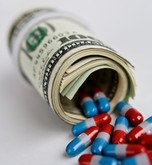Reports
Biosimilar substitution in Europe
In the European Union (EU), decisions on the interchangeability or substitution of biosimilars and originator biologicals are not made by the European Medicines Agency (EMA), but at the national level. This is despite the fact that biosimilars developed in line with EU requirements are considered by EMA to be therapeutic alternatives to their reference biologicals.
Product-specific pharmacovigilance
Four key considerations for biosimilar interchangeability have been proposed by Dr Brad Jordan, Director of Global Regulatory and R & D Policy at Amgen. He also outlined five principles to address these considerations. The fifth of these principles addresses product-specific pharmacovigilance [1].
Sound pharmacy practices for biosimilars
To address the four key considerations for biosimilar interchangeability Dr Brad Jordan, Director of Global Regulatory and R & D Policy at Amgen outlined five principles during his presentation at the SMi 3rd Annual Biosimilars USA Conference [1]. The fourth of these principles is that there should be sound pharmacy practices for biosimilars.
Safe switching for biosimilars
Five principles to address the four key considerations for biosimilar interchangeability were presented by Dr Brad Jordan, Director of Global Regulatory and R & D Policy at Amgen at an annual biosimilars conference [1]. The third of these principles is that clinically relevant evidence of safe switching for biosimilars is required.
Drug pricing to remain a challenge for the industry
Pricing is the foremost issue facing the pharmaceutical industry, and is especially prominent in the US. Pharmaceutical companies are renowned for charging more for their drugs in the US than in other Western nations, sometimes by up to five times.
Biosimilarity does not mean extrapolation of all indications
In his presentation at the SMi 3rd Annual Biosimilars USA Conference, Dr Brad Jordan, Director of Global Regulatory and R & D Policy at Amgen, outlined five principles that address four key considerations for biosimilar interchangeability [1]. The second of these principles is that biosimilarity does not mean extrapolation of all indications.
Study undermines pharmaceutical industry’s justification for high pricing in the US
A recent report in Health Affairs suggests that drug prices in the US generate significantly more revenue than their development costs, dismantling a common argument put forward by the pharmaceutical industry.
Biosimilarity is not interchangeability
The following key considerations for interchangeabilty should be addressed before any biosimilar is designated as interchangeable, according to Dr Brad Jordan, Director of Global Regulatory and R & D Policy at Amgen [1]:
- Policies should address medically-guided and pharmacy mediated scenarios
- Decisions should be based on product-specific evidence
- Patients and prescribers should have options and input
- Policies and practices should support product-specific pharmacovigilance
The evolution of biosimilars in the US
The US has come a long way since the introduction of the Biologics Price Competition and Innovation Act of 2009 (BPCI Act), which was signed into law on 23 March 2010 by President Barack Obama.
Hungarian experience with the use of biosimilar infliximab in IBD
In a study of real life experience with biosimilar infliximab CT‑P13 the results suggest high response and remission rates similar to those previously reported with the originator biological [1].












